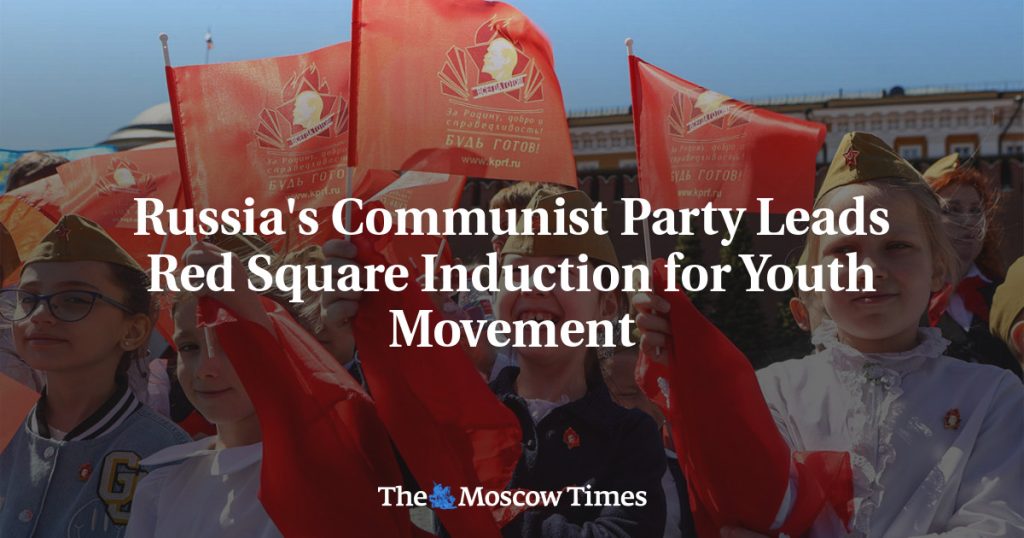On Pioneer Day, Russia’s Communist Party celebrated the Soviet Union’s Young Pioneers movement by holding an induction ceremony for its modern-day youth organization, Dvizheniye pervykh (Movement of the First), on Red Square. While the original Young Pioneers movement was dissolved after the collapse of the U.S.S.R, Russian lawmakers approved the creation of this new youth movement in 2022 to honor the Soviet-era organization’s 100th anniversary. However, the new movement has received international scrutiny, as it was sanctioned by the European Union in February 2024 for its role in undermining Ukraine’s territorial integrity, sovereignty, independence, stability, and security.
The induction ceremony for Dvizheniye pervykh on Pioneer Day showcased the revival of Soviet-style youth organizations in Russia, reflecting a broader trend of nostalgia for the Soviet era among some segments of the population. The event on Red Square, a historic and symbolic location in Moscow, underscored the Communist Party’s efforts to recruit and mobilize young people under the banner of the new movement. While the original Young Pioneers movement was known for instilling socialist values and promoting loyalty to the state, the modern-day version appears to be aligned with the Communist Party’s political agenda, which includes promoting unity and patriotism among Russian youth.
The European Union’s decision to sanction Dvizheniye pervykh raises concerns about Russia’s foreign policy objectives and its approach towards neighboring countries, particularly Ukraine. By supporting actions that undermine Ukraine’s sovereignty and territorial integrity, the new youth movement has become embroiled in geopolitical tensions and conflicts in the region. This development also highlights the complex relationship between historical narratives, national identity, and political ideology in contemporary Russia, where echoes of Soviet symbolism and rhetoric intersect with current geopolitical realities.
The controversy surrounding Dvizheniye pervykh reflects broader debates within Russian society about the legacy of the Soviet Union and the role of youth organizations in shaping the country’s future. While some view the revival of Soviet-style movements as a way to promote patriotism and national pride, others see it as a dangerous trend that glorifies an authoritarian past and perpetuates divisions within society. The intersection of historical memory, political ideology, and generational dynamics in Russia underscores the complex and fluid nature of identity formation in a country grappling with its Soviet legacy and global positioning.
Overall, the induction ceremony of Dvizheniye pervykh on Pioneer Day serves as a reminder of Russia’s complex relationship with its Soviet past and the ongoing debates about national identity and historical memory. The revival of Soviet-style youth organizations reflects the Communist Party’s efforts to mobilize young people and promote its political agenda, while also raising questions about the impact of such movements on Russia’s domestic and foreign policies. As the new movement faces international scrutiny and condemnation for its role in undermining Ukraine’s stability and security, the broader implications of reviving Soviet-era symbols and practices remain a contentious issue in Russian society and beyond.















